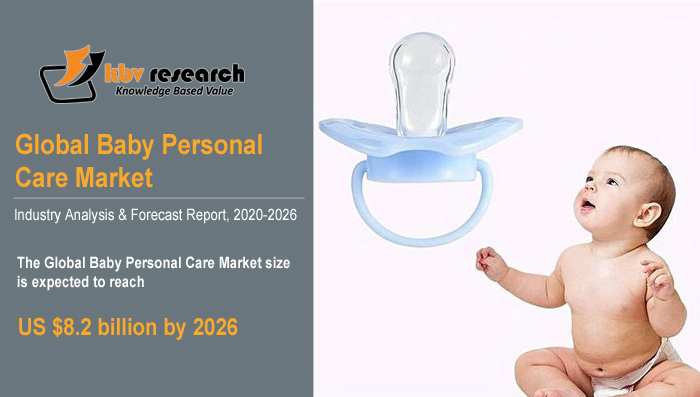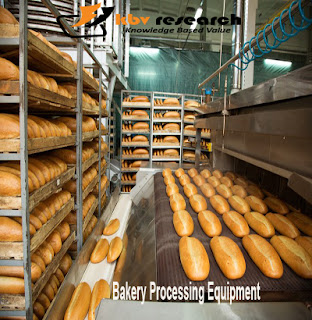Modern Parents Bring in Modern Trends in the Baby Personal Care Products Industry
A new wave of adults is beginning on their journey to parenthood. The choices they make both before and after the birth of their newborns are key to understanding the latest consumer trends that retailers need to take into account when targeting demographics and also while manufacturing baby personal care products.
 |
| Baby Personal Care Products |
Baby personal care products are gaining immense popularity all over the world. Birth rates in developing countries have risen, consumer awareness of child hygiene has increased, consumer availability has increased, and changes in lifestyles have fueled the market growth. In addition, the launch of organic ingredients is expected to contribute to the baby's personal care product.
All you need to know about the baby personal care industry
Baby personal care products are used in a range of product categories, such as skincare, haircare, and toiletries. The manufacturing of personal care items for babies involves a comprehensive selection of ingredients, with a preference given to the use of safe ingredients. The product range covers baby powder, shampoos, body lotions, massage oil, shower gel, baby wipes, and other products. Before they are commercially available, the products undergo a variety of clinical studies.Baby products are intended for use in infants and children under the age of three. Baby products are primarily formulated to be mild and non-irritating and to use the ingredients chosen for these properties. Baby products cover baby shampoos, baby wash and baby lotions, baby oils, baby powder, and baby creams. The effects of baby care products can usually be divided into the following categories: cleansing, care, and protection. There is currently a multitude of product types on the market.
Types of baby personal care products:
Toiletries
Baby toiletries include all necessary baby care products and are used to maintain the hygiene and safety of infants and toddlers. Various personal care products are widely available on the market, such as personal bath products, body care products, baby diapers, and wipes. These products are primarily manufactured for use in infants and come in less or less chemical content and are therefore considered safe for use in infants as well. Rising the health and safety concerns associated with infants among parents, rising numbers of working women around the globe, and increasing disposable incomes of individuals are key factors driving the revenue growth of the target market.Cosmetics
Baby cosmetics, intended for use in newborn babies and children up to five years of age, are indeed a very special category. They are invariably functional rather than decorative, mainly concerned with keeping the child or child clean, comfortable, and healthy.Since infants and young children are somewhat more vulnerable than their adult counterparts, baby products must be carefully formulated to be extremely mild and gentle to the skin and hair. These considerations impose a range of requirements and restrictions on the design, evaluation, and production of baby personal care products. Any individual working in the field of child care will understand and follow up on these issues accordingly.
Skincare
Baby Lotions, Oils, Powders, and Creams are products intended to moisturize and soften the skin of infants and children under the age of three. These products are specially designed to be mild and non-irritation. Many infant lotions, creams, and oils contain mineral oils. Adults that have delicate skin or are very prone to ordinary ingredients can often use Baby Lotions, Oils, Powders, and Creams.Manufacturers carry out extensive safety tests to ensure that these products are safe for use in young children. All products can only be used under near-adult supervision. It is very important to read and follow the directions for use on the product. Any consumer who has concerns about the use of the product should call the number on the packaging of the product.
Haircare
Baby Shampoos are products that are made to be used to clean the hair of infants and children under the age of three. These products are specially formulated to be non-irritating and soft to the eyes. Mostly, these products contain non-ionic ingredients that appear to be milder than ionic ingredients which have a minor negative effect.Baby personal care products are not only an established industry among the little ones; adults who are very sensitive to ordinary products are also using these products at a progressive rate. Manufacturers carry out extensive safety tests to ensure that these products are safe for use in young children. All products can only be used under near-adult supervision. It is very important to read and follow the directions for use on the product. Any customer who has concerns about the use of the drug should call the number on the packaging of the product.
Baby personal care products trends driven by modern-day parents:
Growing demand for baby diapers
Baby diapers are an essential product of the whole personal care sector for babies. In addition, the baby diapers industry is expected to grow at a faster pace with the rise in the average birth rate in emerging markets. Among the emerging countries, the fastest-growing markets are India, Indonesia, Venezuela, Turkey, and Mexico among others.The market penetration of baby diapers in the United States recorded a relatively gradual pace, due to the strong competition among key players and moderate product innovation. Due to increasing consumer awareness and ease of use, the diaper pants product range is witnessing higher market traction among infant diapers.
Supermarkets
Supermarkets and discounters are gaining traction in the mother and baby markets. Parents usually buy their baby's personal care products in supermarkets when they do their main grocery shopping, which is causing tough competition in the market. For instance, organic baby food brands such as Organix and Hipp Organic have experienced a heavy blow to sales as Aldi and Lidl's launch offers are cheaper.Supermarkets not only offer their shoppers great prices and convenience, but they also invest their efforts to strengthen their presence. Brands need to work even harder to attract and retain customers by providing customers the experience they can't get in their local supermarket.
Importance of a status symbol
It's no secret that starting a family can be a costly journey, which is why so many are waiting longer. In addition, 68% of first-time mothers and 54% of first-time mothers are now over thirty years of age. At this point in their lives, they are more likely to have settled in a career and to be in a strong financial position to support a family; therefore, new parents have more money to spend on luxurious baby items.Parents are spending on products such as pushchairs, which are seen outside the household, and are investing fewer on those 'hidden' products, such as nursery furniture. Retailers such as Bugaboo and Silver Cross are responsible for turning luxury buggies into a status icon. New parents want to convince the world they are best suited to their child, and Silver Cross is offering parents this aspiration. At a time that may be daunting for new parents, this symbol gives them a sense of reassurance, where they consider that if they buy it for their child, they 're one step closer to becoming great parents.
Free Valuable Insights: Global Baby Personal Care Market to reach a market size of USD 8.2 billion by 2026


Comments
Post a Comment